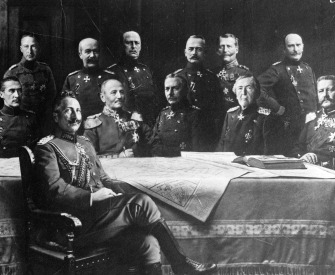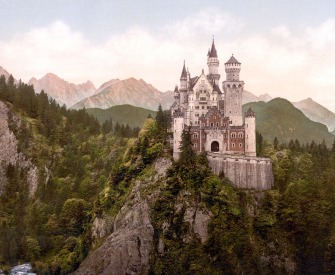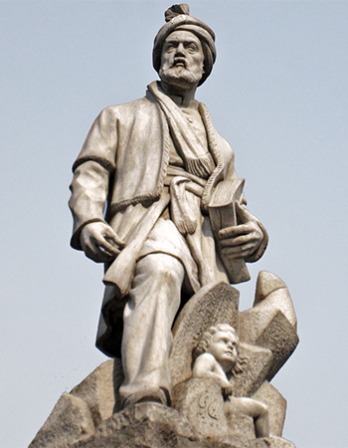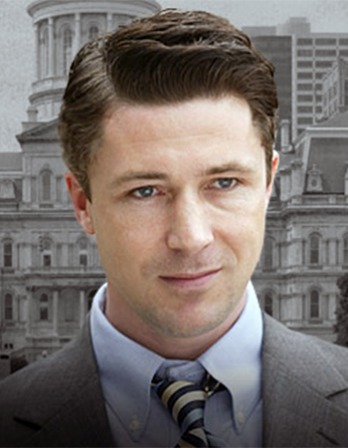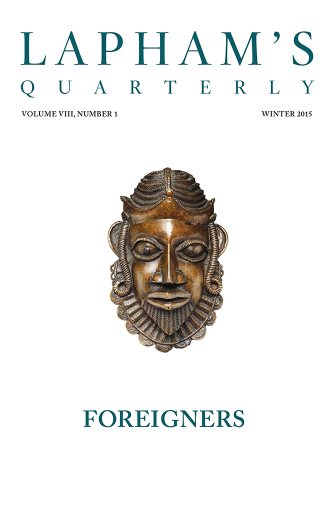Only the little people pay taxes.
—Leona Helmsley, 1989A Galaxy Far, Far Away
Thomas More on the persistent power of Utopia.
To my mind, it’s not only the best country in the world, but the only one that has any right to call itself a republic. Elsewhere, people are always talking about the public interest, but all they really care about is private property. In Utopia, where there’s no private property, people take their duty to the public seriously. And both attitudes are perfectly reasonable. In other “republics,” practically everyone knows that if he doesn’t look out for himself, he’ll starve to death, however prosperous his country may be. He’s therefore compelled to give his own interests priority over those of the public; that is, of other people. But in Utopia, where everything’s under public ownership, no one has any fear of going short, as long as the public storehouses are full. Everyone gets a fair share, so there are never any poor men or beggars. Nobody owns anything, but everyone is rich—for what greater wealth can there be than cheerfulness, peace of mind, and freedom from anxiety? Instead of being worried about his food supply, upset by the plaintive demands of his wife, afraid of poverty for his son, and baffled by the problem of finding a dowry for his daughter, the Utopian can feel absolutely sure that he, his wife, his children, his grandchildren, his great-grandchildren, his great-great-grandchildren, and as long a line of descendants as the proudest peer could wish to look forward to, will always have enough to eat and enough to make them happy. There’s also the further point that those who are too old to work are just as well provided for as those who are still working.
Now, will anyone venture to compare these fair arrangements in Utopia with the so-called justice of other countries?—in which I’m damned if I can see the slightest trace of justice or fairness. For what sort of justice do you call this? People like aristocrats, goldsmiths, or money-lenders, who either do no work at all or do work that’s really not essential, are rewarded for their laziness or their unnecessary activities by a splendid life of luxury. But laborers, coachmen, carpenters, and farmhands, who never stop working like cart-horses at jobs so essential that, if they did stop working, they’d bring any country to a standstill within twelve months—what happens to them? They get so little to eat, and have such a wretched time, that they’d be almost better off if they were cart-horses. Then, at least, they wouldn’t work quite such long hours, their food wouldn’t be very much worse, they’d enjoy it more, and they’d have no fears for the future. As it is, they’re not only ground down by unrewarding toil in the present, but also worried to death by the prospect of a poverty-stricken old age—since their daily wages aren’t enough to support them for one day, let alone leave anything over to be saved up when they’re old.
Can you see any fairness or gratitude in a social system which lavishes such great rewards on so-called noblemen, goldsmiths, and people like that, who are either totally unproductive or merely employed in producing luxury goods or entertainment, but makes no such kind provision for farmhands, coal-heavers, laborers, carters, or carpenters, without whom society couldn’t exist at all? And the climax of ingratitude comes when they’re old and ill and completely destitute. Having taken advantage of them throughout the best years of their lives, society now forgets all the sleepless hours they’ve spent in its service, and repays them for all the vital work they’ve done by letting them die in misery. What’s more, the wretched earnings of the poor are daily whittled away by the rich, not only through private dishonesty, but through public legislation. As if it weren’t unjust enough already that the man who contributes most to society should get the least in return, they make it even worse and then arrange for injustice to be legally described as justice.
In fact, when I consider any social system that prevails in the modern world, I can’t, so help me God, see it as anything but a conspiracy of the rich to advance their own interests under the pretext of organizing society. They think up all sorts of tricks and dodges, first for keeping safe their ill-gotten gains, and then for exploiting the poor by buying their labor as cheaply as possible. Once the rich have decided that these tricks and dodges shall be officially recognized by society—which includes the poor as well as the rich—they acquire the force of law. Thus, an unscrupulous minority is led by its insatiable greed to monopolize what would have been enough to supply the needs of the whole population. And yet how much happier even these people would be in Utopia! There, with the simultaneous abolition of money and the passion for money, how many other social problems have been solved, how many crimes eradicated! For obviously the end of money means the end of all those types of criminal behavior which daily punishments are powerless to check: fraud, theft, burglary, brawls, riots, disputes, rebellion, murder, treason, and black magic. And the moment money goes, you can also say goodbye to fear, tension, anxiety, overwork, and sleepless nights. Why, even poverty itself, the one problem that has always seemed to need money for its solution, would promptly disappear if money ceased to exist.
Let me try to make this point clearer. Just think back to one of the years when the harvest was bad and thousands of people died of starvation. Well, I bet if you’d inspected every rich man’s barn at the end of that lean period you’d have found enough corn to have saved all the lives that were lost through malnutrition and disease, and prevented anyone from suffering any ill effects whatever from the meanness of the weather and the soil. Everyone could so easily get enough to eat if it weren’t for that blessed nuisance, money. There you have a brilliant invention which was designed to make food more readily available. Actually it’s the only thing that makes it unobtainable.
I’m sure that even the rich are well aware of all this and realize how much better it would be to have everything one needed, than lots of things one didn’t need—to be evacuated altogether from the danger area, than to dig oneself in behind a barricade of enormous wealth. And I’ve no doubt that either self-interest or the authority of our savior, Christ—Who was far too wise not to know what was best for us and far too kind to recommend anything else—would have led the whole world to adopt the Utopian system long ago if it weren’t for that beastly root of all evils, pride. For pride’s criterion of prosperity is not what you’ve got yourself, but what other people haven’t got. Pride would refuse to set foot in paradise if she thought there’d be no underprivileged classes there to gloat over and order about—nobody whose misery could serve as a foil to her own happiness, or whose poverty she could make harder to bear by flaunting her own riches. Pride, like a hellish serpent gliding through human hearts—or, shall we say, like a sucking fish that clings to the ship of state?—is always dragging us back and obstructing our progress toward a better way of life.
But as this fault is too deeply ingrained in human nature to be easily eradicated, I’m glad that at least one country has managed to develop a system which I’d like to see universally adopted. The Utopian way of life provides not only the happiest basis for a civilized community, but also one which, in all human probability, will last forever. They’ve eliminated the root causes of ambition, political conflict, and everything like that. There’s therefore no danger of internal dissension, the one thing that has destroyed so many impregnable towns. And as long as there’s unity and sound administration at home, no matter how envious neighboring kings may feel, they’ll never be able to shake, let alone to shatter, the power of Utopia. They’ve tried to do so often enough in the past, but have always been beaten back.
Audio brought to you by Curio, a Lapham’s Quarterly partner

Thomas More
From Utopia. More coined the term utopia, punning on the Greek words for “no place” and “good place.” A distinguished statesman and humanist scholar, he served Henry VIII as Lord Chancellor for three years (1529–1532) before he was beheaded in 1535 for his formal opposition to the king’s secession from the Catholic Church.
